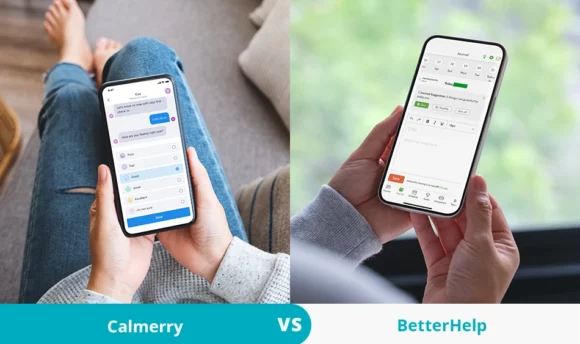How to Forgive Yourself for Cheating: 8 Steps to Begin Healing
The guilt of cheating can cause a rollercoaster of emotions. You might experience self-hate and self-loathing as you try to come to terms with the gravity of your actions. It can be a lengthy process, but there are some things you can do to help reach a place of self-forgiveness.

We all love the idea of a perfect relationship, but unfortunately, human beings make mistakes. Cheating on your partner in a committed relationship can significantly impact your mental health. Feeling guilty is an entirely normal response, but that doesn’t make it any easier.
While you might desperately seek forgiveness from your partner, you must also find redemption from within. Even if your partner can forgive you, your own guilt can sabotage your relationship. Self-acceptance is critical before moving forward alone or together.
Keep reading to learn how to begin your self-healing journey after cheating.
How to Forgive Yourself for Cheating: 8 Steps to Start With
Guilt after cheating can consume your world, but you don’t have to punish yourself forever. Now is the time to do some soul-searching to help you come to terms with what has happened. Only then can you salvage or let go of your relationship and move forward with your life.
Here are 8 steps to help you move toward self-forgiveness.
#1 Take responsibility for your actions
The first step is taking personal responsibility. Blaming the other person or making excuses for your behavior will not benefit you in the long term. You must acknowledge what you have done and the pain you have caused in order to move forward with your future in a healthy manner.
Whether it was a one-night stand or an ongoing affair, you need to acknowledge your role and accept your mistake. Doing so does not make you a bad person – a good person can still make a bad decision. The important thing is that you learn from your mistakes and don’t repeat them.
Once you are honest with yourself, you will find it easier to forgive yourself for cheating.
#2 Communicate with your partner
It’s time to be honest. After taking responsibility for your actions, you need to talk to your partner. It can be difficult to admit that you have cheated, but it is essential if you want to rebuild the relationship. Whatever has happened, try your best to tell the truth and remain sincere throughout the conversation.
If you don’t want to be in the relationship anymore, you also need to communicate that to your partner. Either way, honesty with your partner is essential. When you feel guilty, opening up can help. Coming clean unburdens you, and it may aid your forgiveness journey.
#3 Learn how to apologize
Saying you’re sorry and meaning it can go a long way. A genuine apology will help your partner realize that you recognize your mistakes and the hurt you’ve caused. It demonstrates that you feel bad for your actions and are not trying to place blame elsewhere.
A sincere apology reflects a genuine recognition that you are at fault. Studies show that an apology is one of the most powerful predictors of interpersonal forgiveness, which promotes a desire to maintain the relationship. An apology perceived to be insincere is unlikely to resolve matters.
#4 Understand why is it that you cheated
Understanding what led you to cheat in the first place can help you work toward forgiving yourself. If you can figure out why it happened, it can help you gain a better understanding of your relationship, enabling you to identify the aspects that you and your partner need to improve.
Try to remember what fueled you to make a mistake. It’s not about blaming your partner but recognizing that your relationship might require work. For example, do you feel like you and your partner have drifted apart? Has communication broken down in the relationship?
Journaling can help improve the negative emotions that come with guilt, including depression and anxiety symptoms.
#5 Avoid making excuses
Avoiding making excuses goes hand in hand with taking responsibility. There might be reasons behind your behavior, but making excuses for yourself will not allow you to learn and grow. Avoiding making excuses will help you find inner forgiveness and help your partner understand that you are genuinely remorseful.
#6 Figure out what it is that you want
Generally, it is for the injured party to decide if they want to continue the relationship. However, you also need to decide what you want. Once you figure that out, you can make a final decision about whether you want to try and salvage the relationship or walk away.
Understanding why you cheated might help you reach your decision. Consider how you felt in the relationship before cheating. Were you happy? Were you trying to sabotage the relationship? Take the time to think things through. You could go for a long run to clear your head.
A good way to start thinking about what you want in life is to write down some questions and work your way through them. Consider what makes you happy, what dissatisfies you, and where you see yourself in the next 5 years or so.
#7 Stop communicating with the person you’ve cheated with
Try imagining for a moment how you would feel if your partner cheated on you. Chances are, you wouldn’t like the idea of them communicating with the person they cheated with. Having that other person around you can make your partner feel insecure, making trust-building more difficult.
Moreover, continuing to see and contact them will only remind you of your guilt. Sometimes, it might even encourage you to repeat the act, making you feel more guilty. It’s better to cut ties with the individual you cheated with if you feel remorseful for your actions and want to move on.
#8 Discuss your feelings with a professional
Feelings of guilt can leave you feeling lonely. It can be tough to face your emotions alone and even more difficult to channel them. Professional help can be an excellent tool for supporting your healing process and helping you discover self-forgiveness.
If you and your partner want to make the relationship work, you can also see a relationship or marriage counselor. Couples counseling is a talking therapy that can help you identify negative behaviors in the relationship and help you recognize where it might have gone wrong.
Furthermore, relationship advice from somebody on the outside can bring a new perspective to your situation. Therapeutic practice with a focus on infidelity helps participants consider forgiveness as a means to restore the physical and emotional well-being of both parties.
How to Get Over the Guilt of Cheating
Infidelity in relationships is complex. It triggers a range of negative emotions for both partners, and the cheating guilt can be challenging to overcome. It’s important to take the time to understand how you feel about the scenario and acknowledge your personal responsibility.
Getting over the intense feelings of guilt means you need to forgive yourself. Only then can you stop dwelling on the past and move forward with your life. You can work on self-forgiveness by accepting accountability, being honest with your partner, and making an effort to understand what made it happen.
A Word From a Psychologist
Forgiving yourself for cheating is not something you can master overnight. It takes time to come to terms with and accept your behavior. It can be confusing, and forgiveness might seem like a concept you will never obtain, especially if you’re filled with guilt and self-hate.
Self-forgiveness calls for a cognitive reframing of how you view yourself. Try to think about yourself in a positive light. You feel guilty because you recognize that you have done wrong. It is a normal human response, but you can’t beat yourself up over your mistake forever.
Try making a list of your positive qualities. Spending time with people who love you for who you are can help improve your self-perception. You can also practice healthy habits to help encourage a healthy mindset. Try going for a morning walk, taking a yoga class, or stretching.
Always talk to someone if you feel you cannot cope with feelings of guilt. A therapist or mental health professional can help you understand your emotions and guide you on the path to self-forgiveness. You can also talk to friends and family about how you feel.
Conclusion
It might feel impossible right now, but forgiving yourself for cheating is paramount to your self-growth. Cheating on your partner is something that you might struggle to come to terms with for a long time, but making some positive changes can help you get your life back on track.
Remaining open and honest with yourself and your partner is key. Remember, you can always communicate your thoughts to a mental health professional if you’re struggling to cope with guilt. They can help guide you in the right direction so you can start allowing yourself to heal.

















































 Select your language:
Select your language: 








